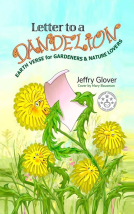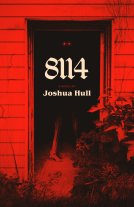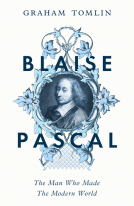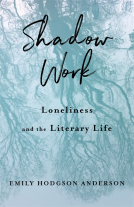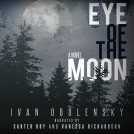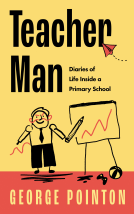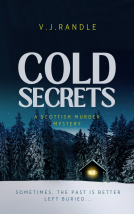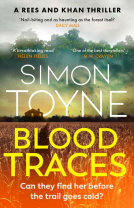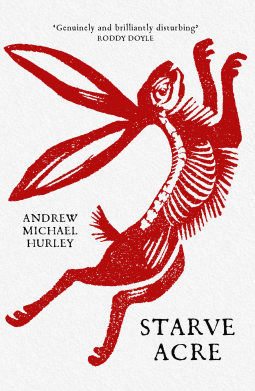
Starve Acre
'Beautifully written and triumphantly creepy' Mail on Sunday
by Andrew Michael Hurley
This title was previously available on NetGalley and is now archived.
Send NetGalley books directly to your Kindle or Kindle app
1
To read on a Kindle or Kindle app, please add kindle@netgalley.com as an approved email address to receive files in your Amazon account. Click here for step-by-step instructions.
2
Also find your Kindle email address within your Amazon account, and enter it here.
Pub Date 29 Oct 2020 | Archive Date 9 Nov 2021
John Murray Press | John Murray
Talking about this book? Use #StarveAcre #NetGalley. More hashtag tips!
Description
The worst thing possible has happened. Richard and Juliette Willoughby's son, Ewan, has died suddenly at the age of five. Starve Acre, their house by the moors, was to be full of life, but is now a haunted place.
Juliette, convinced Ewan still lives there in some form, seeks the help of the Beacons, a seemingly benevolent group of occultists. Richard, to try and keep the boy out of his mind, has turned his attention to the field opposite the house, where he patiently digs the barren dirt in search of a legendary oak tree.
Starve Acre is a devastating new novel by the author of the prize-winning bestseller The Loney. It is a novel about the way in which grief splits the world in two and how, in searching for hope, we can so easily unearth horror.
Available Editions
| EDITION | Other Format |
| ISBN | 9781529387308 |
| PRICE | £8.99 (GBP) |
| PAGES | 256 |
Featured Reviews
 Paromjit H, Reviewer
Paromjit H, Reviewer
Andrew Michael Hurley has a real gift for the gothic style, horror tinged, atmospheric storytelling that immerses the reader here in a chillingly dark and disturbing world. He draws on his trademark themes of history, superstitions and folklore in a ominous narrative that goes back and forth in time. The Willoughbys have relocated to the rural Yorkshire Dales to an inherited home, Starve Acre, a name that certainly doesn't inspire comforting heartwarming pictures. For Richard and Juliette as parents, the very worst that could have happened is swamping their lives, the unbounded intense grief at the loss of their little 5 year old boy, Ewan. Ewan had been a sweet and happy boy, but had changed drastically recently, becoming more temperamental and worryingly cruel, with locals afraid of him and leaving his parents concerned. They deal with their grief in different ways, with Richard focusing on the history of Starve Acre, and the field with the legendary Stythwaite Oak, discovering wood block prints depicting hangings, the scary figure of Jack Grey and unearths hares bones.
Juliette remains convinced that Ewan is still there, but worried that his presence is weakening. To address this, she invites into their home an occultist group, The Beacons. The unnerving events that follow are not what was planned as it all culminates in one hell of a freaking shocker of an ending. Hurley gives us vivid rich descriptions of the location, and leaves the reader unsure as to what is real, whether the fantastical elements can be believed, and the tortuous grim nature of the hell that is grief. This novella held me in its chilling and tightly gripping arms, right from the start until I finished it all in one sitting, upon which I was left stunned and dazed as I returned back to reality.
This book should be on everyone's list as the dark nights of the approaching Autumn inch closer, it is perfect reading fare for Halloween. Highly recommended. Many thanks to John Murray Press for an ARC.
 Joe T, Book Trade Professional
Joe T, Book Trade Professional
Starve Acre by Andrew Michael Hurley
Richard and Juliette are grieving the loss of their five year old son, Ewan, at Starve Acre, their inherited home in a rural English village. Richard has thrown himself into his work, researching a legendary oak tree thought to have historically stood in the house’s grounds. Juliette, meanwhile, thinks Ewan is still present in the house, chronicling the encounters she has with him, and inviting The Beacons, a group of occultists, to the house to help her reconnect with her son.
Is there anything to Juliette’s insistence that Ewan is still around? Could the folklore of the tree and the village have anything to do with the odd, violent behaviour Ewan was exhibiting before his death?
As with The Loney, there’s a great ambiguity here - there could, however far fetched, be a rational explanation for pretty much everything - but it’s also easy to believe something more mystical and chilling. Are there dark forces at play, or is the cleverly constructed framework of folklore, grief and history creating a mood where it’s so easy to believe something unreal? It’s a great grey area and one which Hurley thrives in.
The plot whips past at a very quick pace, particularly in comparison to Hurley’s previous books. On the one hand, this is fantastic as I was hooked throughout and constantly struggled to find a point to stop reading. On the other hand, it perhaps felt like an extra 50 pages or so could’ve further developed some of the characters, helped to enhance the gothic mood of the novel and created more intrigue. These parts were all highlights of the novel anyway but I do think the mood in particular could’ve been heightened even further (maybe that’s just my incredibly dark reading taste)!
I really enjoyed this (I love gothic and a hint of fantasy), even more than The Loney, and think it’ll be a cracking gothic read for Halloween. With a confident, beautifully writing style that doesn’t ever interfere with a darker, unnerving mood and plot, it’s a brilliantly crafted look at grief and folklore and has me excited for even more from Hurley in the future.
A huge thank you to NetGalley and the publisher, John Murray Press, for allowing me the chance to read this book ahead of its publication in exchange for an honest review!
A quick read, I sat down and raced through it. Within a few hours I was done. I’ll say right now – prepare yourselves for this book. It’s awesome and terrifyingly chilling!
Situated in the remote fens, on an acre of land starved of life, the setting could not be more perfect for this novel. Juliette and Richard are struggling through their grief after the death of their son, Ewan, whilst living on their isolated piece of land called Starve Acre.
Told from Richard’s perspective, and at first I wasn’t sure I would like him as a character – he isn’t as compassionate or as empathetic towards his wife as I felt he should be, but then I realised that everybody handles their grief differently. He isn’t the perfect husband, nor is she the perfect wife, and the most awful thing in the world has happened to them. In this way, one of the primary themes of Starve Acre is loss and grief, and the way families deal with it, as well as the ways in which relationships of the people left behind are affected by a loss so huge.
It is also layered in local superstitions and folklore. Starve Acre gradually releases from its depths the local story of an oak tree, long since gone and called The Hanging Tree, with an awful history, and a figure nicknamed Jack Grey hiding in the woods of Starve Acre, a story told to frighten wandering children. Or is it?
The story gently pulls us from the present into Ewan’s final months, and we see how his character changed from a sweet, fun, loving boy into a child capable of doing awful things. His parents worry, until eventually Juliette admits that Ewan frightens her at times. Through Richard’s eyes we see links forming between Ewan and the field that he plays in, the field in which, in the present day, Richard digs and digs, trying to find the roots of The Hanging Tree, trying to confirm it’s history.
It’s extremely cleverly done, and it took me on a chilling journey. Are the stories of Jack Grey and the oak tree to be believed? Did it really have something to do with Ewan’s changing behaviour? And what of the mysterious Beacons?
You see, there’s another element to this book. Juliette believes that Ewan is still with them, that he exists in some form in the house, but lately his presence is weakening. In an effort to regain it, she calls upon the Beacons, a strange occult-like group who come to their house and perform some kind of ritual which doesn’t go to plan. After which, Juliette changes in demeanour in strange and concerning ways.
As we watch the story unfolding, in the past and the present, the horror begins to emerge. Starve Acre kept me reading on the edge of my seat, and it is intensely chilling! That ending… That ending kept me awake. It is so far from anything I could have imagined happening! It’s just…. it’s horrible and morbidly fascinating and just shocking! Such a twist I could never have predicted.
Paired with the fantastically atmospheric writing style, I think this book will easily find its way onto my favourites list for 2019.
 Joseph C, Reviewer
Joseph C, Reviewer
Starve Acre was originally issued by Dead Ink Books as part of their Eden Book Society series, as the purported work of 1970's author Jonathan Buckley. The elusive "Buckley" is none other than Andrew Michael Hurley - and Starve Acre is now being published by John Murray under Hurley’s name and with new cover art. Hurley himself describes this work as being “very much in the folk horror tradition”, describing “how grief strips the world into two”.
Starve Acre’s protagonists are Richard and Juliette, a couple who have lost their only son, Ewan, and are trying to get to grips with this tragic, life-changing event. Whilst Juliette believes that Ewan lives on in their house in rural Yorkshire, Richard, an archaeologist by profession, becomes obsessed with the sterile field contiguous to this house, and what lies buried beneath its dark soil.
The Eden Book Society series is based on the fictional premise that its books were written back in the 1970s. True to that brief, the story as originally published contained some period-specific references which suggest that decade (such as Richard working on a typewriter and the conspicuous lack of mention of more recent technologies such as mobile phones). This ‘historical’ backdrop has been retained in this edition. However, in true folk horror tradition, the evil which lurks within the pages of the novel is ancient and timeless – an age-old shadow which is at one with the landscape and soil, an arcane folk figure which has terrified the villagers for centuries and which returns to curse the ‘city outsiders’ who naively try to live a dream of a simple country life.
This evil is nudged back to existence after Hurley’s protagonists, Richard and Juliette relocate from Leeds to the rural house which used to belong to Richard’s parents. Richard is not too keen on this move, particularly since it evokes memories of his father’s final mental breakdown. Juliette, however, fantasizes about their little son Ewan playing with the village children, and about raising a family of rascally young Willoughbys far from the hustle and bustle of the city. These dreams are shattered when Ewan dies in circumstances which remain vague and unexplained. Juliette falls into a debilitating depression, whereas Richard, like his father before him, spends days digging in the soil of the neighbouring “Starve Acre”, unearthing what look like the roots of an ancient “hanging tree” and the bones of a large hare. A well-meaning neighbour introduces the couple to a local mystic who conducts a séance-like ceremony in the house. It all goes horribly wrong, leading to the novella’s chilling denouement.
The story’s narrative is deftly handled, shifting seamlessly between the grief-soaked present of the Willoughbys, flashbacks to Ewan’s disturbed final months and half-remembered legends of bogeymen of English folklore. What is particularly effective, however is the sense of ambiguity which the novella shares with some classic ghost and horror stories including, to name just one famous example, Oliver Onions’ The Beckoning Fair One. Thus, Starve Acre can be read literally as a supernatural tale or, at another level, as a study of a descent into madness and obsession, its otherworldly elements merely the morbid imaginings of sick minds. Either way, Hurley continues to confirm his status as the current master of folk horror.
What a wonderfully weird and delightful little (short) novel!
This novel deals with the loss of a child but also the folklore and superstitions which exist within small towns. Just what happened to Juliette and Richards son, Ewan? Who is the forbidding presence of Jack Grey? And how is he linked to the paranormal things happening at Starve Acre?
Andrew Michael Hurley manages to weave a chilling atmosphere and a chilling, creeping sense of dread and I did not see the twist coming at the end at all! This novel will be a nice little read for Halloween.
Many thanks to Netgalley for providing me with an e-arc of this in exchange for an honest review.
Having really enjoyed The Loney and Devils Day I was really pleased to receive this ARC and I was not disappointed. From the opening sentences with the beautiful winter descriptions of Croftendale in the Dales right through to the mind blowing end I was hooked. This is the story of Richard, Juliette and Ewan Willoughby and their home Starve Acre. It is a story of grief, guilt and sorrow following the death of young Ewan, it encompasses local legends, superstitions, magic and beliefs. The story weaves effortlessly from before Ewan died to afterwards and we learn how Ewan changed and became a cause of consternation and fear to the villagers as well as to his mother.
Starve Acre is very well depicted and I enjoyed the sections where Richard reorganises his fathers books and finds the wood block prints which show the legendary Stythwaite Oak (which is on their land and Richard is excavating for) later he finds one that shows Jack Grey the local bogeyman and later ones which depict hangings from centuries ago. Jack Grey and the Tree have a major effect on Ewan one minute he is ’morose’ then ‘hyperactive’ and certainly he became vindictive. For instance, he joyfully builds a snowman with his parents, the next day he viscously destroys it. I found Richards and Juliette’s reaction to Ewan and his subsequent death very thought provoking. They didn’t know what Ewan’s life meant - he took all their love and filled them with sorrow. Juliette is initially inert and wracked with guilt but later this changes. Richard tries to keep busy with the excavation and find some acceptance and peace.
The is a lot of magic and superstition in the story. Mrs Forde and the Beacons was interesting and Mrs Forde sensed something fetid in the house which turned out to be true. The hares bones that Richard finds during the excavation of the tree and what happened later is certainly magical and strange. Richard feels the discovery brings a ‘sense of imminence of things brimming on the cusp’. I don’t want to give away any spoilers but the hare caused a few jaw dropping moments. Gordon, one of Richard and Juliette's friends tries to warn them of impending doom.
What a read! The ending socks you right between the eyes. It was fantastic in every sense of the word. It was an eye popping, jaw dropping, heart stopping, mind boggling, dumbfounding and amazing. It is extremely well written with some beautiful descriptions. It is a dark tale so when Ewan welcomes New Years Eve guests with some gorgeous malapropisms that is a welcome laugh out loud moment! It is very different and you have to suspend disbelief but it is well worth reading.
 Kath M, Reviewer
Kath M, Reviewer
This short novel can be read in an evening and is a brilliant read for the long, dark nights. It concerns a family under extreme stress. Their son has died aged five. Through present day, and past recollection, we piece together some of the history of this field where once there grew an enormous oak tree. The author builds the tension up over time and it’s a book that makes you uncomfortable. I really enjoyed it and would recommend it.
 Jean B, Reviewer
Jean B, Reviewer
Until I read some reviews of this book I had never heard of the folk horror genre, but that sums up this tale well. An unsettling combination of folk lore, superstition, village gossip, a woman in touch with the dead, a resurrected hare and a couple grieving following the death of their 5 year old son - who maybe wasn't the innocent child one thinks of at that age. Prepare to be chilled and read with the lights on
Thank you to netgalley and John Murray Press for an advance copy of this book.
 Reviewer 534102
Reviewer 534102
This is one of the most chilling novellas I have ever read. No jump-scares, no overwritten horror, just a creeping sense of Other seeping through the walls of Starve Acre, the house inherited by Richard Willoughby and where his wife Juliette insisted they move to and start a family.
The nearby village has never accepted the family, but is that more to do with the barren field by the house where nothing thrives, nothing lives, that even earthworms skirt around? Richard’s almost obsessive hobby is to unearth the tree used as the village’s gallows in the past, spurred on by his father’s haphazard collection of local history including woodcuttings of the gallows tree in grim action. Due to the death of their young son, Ewan, he pursues this task while his wife mourns in the unchanged bedroom of their lost little boy, refusing all help and support from extended family. Even her brisk sister, Harrie, herself a survivor of brutal domestic violence (so equipped with the knowledge and skills to overcome personal tragedy) cannot break through the carapace of sadness Juliette has grown.
Through the story we learn more about Ewan and our pity at his early death transforms into an awful, guilty sort of relief. This was not a happy, stable or kind child. Was he even a child at all when he did those things?
Psychic Mrs Forde and her Beacons hold a ceremony intended to put the soul of Ewan to rest, but what seems to be a positive outcome at first soon sets in motion a terrifying melding of last and future. Jack Grey will have his prize.
Perfect for fans of the understatedly uncanny and folk horror. I won’t look at those cosy Yorkshire houses set slightly apart from the rest of their village in quite the same way again.
Readers who liked this book also liked:
Alex Johnson; The Imperial War Museum
Cooking, Food & Wine, History, Nonfiction (Adult)
Jenny Linford; National Trust Books
Cooking, Food & Wine, History, Travel
